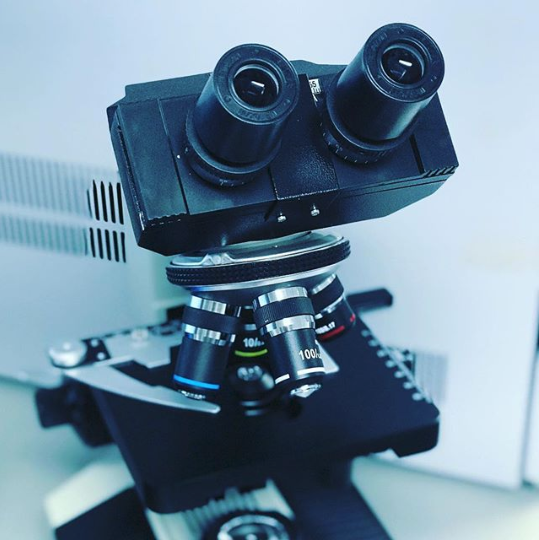 Expert laboratory testing services have added much-needed quality and reliability to the cannabis production industry. These services give cannabis cultivation facilities the objective test results they need to deliver medical marijuana products that have consistent efficacy with minimal adulterants or inactive additives.
Expert laboratory testing services have added much-needed quality and reliability to the cannabis production industry. These services give cannabis cultivation facilities the objective test results they need to deliver medical marijuana products that have consistent efficacy with minimal adulterants or inactive additives.
The laboratory specialists at Modern Canna Science (MCS) in central Florida combine more than fifty years of testing and quality control experience in certified lab environments. MCS’s procedures account for all cannabis testing matrices, which allow cultivators to ensure quality and the highest level of safety for Florida’s medical marijuana industry.
The Coordinates of Cannabis Matrices
MCS currently focuses its efforts on four coordinates of the cannabis matrix:
- Plants (including leaves, stems, buds, and flowers)
- Concentrates and extracts, such as cannabis oils and waxes;
- Soils and other growth mediums;
- Source water, including nutrients and contaminants in that water.
The legislative environment in Florida currently supports cannabis plants for medicinal uses. Accordingly, MCS focuses its testing facilities on cannabis plants, extracts, growth mediums, and source waters, which all play a part in Florida’s medical marijuana regimen.
Cannabis Testing for Plants
Laboratory analysis of plant potency and purity, which includes testing all plant materials, flowers, and buds, is the starting point of all cannabis testing. MCS conducts tests in accordance with industry standards and specifications in at least six different categories:
- Potency. MCS subjects cannabis plants to a battery of tests to deliver a profile of the relative concentrations of the most common cannabinoids found in those plants.
- Pesticides. MCS uses gas chromatography, liquid chromatography, and other techniques to detect residual pesticides, and measures those residues against standards developed by the Association of Official Agricultural Chemists (AOAC), Environmental Protection Agency (EPA), and more.
- Microbes. Bacteria and fungi can impair cannabis efficacy. MCS performs culture and surface sampling and aerobic plate counts and utilizes high performance liquid chromatography to detect microbial contamination.
- Mycotoxins. Mycotoxins are produced by mold and fungus and can have detrimental effects on people who have a compromised immune system. Since many who use marijuana for its health benefits and may have immune system issues it’s extremely important to test marijuana for mycotoxins.
- Heavy Metals. Recent studies show that the processes used to concentrate THC can actually increase the levels of heavy metals which is why it’s important go test marijuana regularly.
- Residual Solvents. Volatile organic compounds (VOCs) are more of a problem for oils, waxes, and other cannabis derivatives, but MCS will also test plants for VOCs when that testing is called for.
- Water Activity. Water is a perfect medium for microbial contamination. Cannabis plants that have excess moisture may promote excessive microbial growth. MCS tests for water activity, because testing for moisture content alone is an inadequate safety measure.
- Terpenes. MCS uses modern techniques to measure terpene concentration in cannabis plants, as that concentration can affect cannabinoid potency and efficacy.
- Flavonoids.
Cannabis Testing for Concentrates and Extracts
Concentrates and extracts have grown more popular in the medical marijuana community because they allow physicians to prescribe specific quantities of the cannabinoids, THC and cannabidiol, that generate the greatest medicinal activity. VOCs are more of an issue for concentrates and extracts because processing facilities sometimes use butane, propane, ethanol, and other organic solvents in the extraction process.
MCS subjects concentrates and extracts to gas chromatography flame ionization detector (GC-FID)/head space analysis to deliver the most accurate measurements of VOC concentrations. When this analysis is combined with other categories of testing, producers receive assurances that they are delivering the highest quality medicinal marijuana concentrates and extracts to patients.
Cannabis Testing and Analysis for Soils and Growth Mediums
Lead and other heavy metals can increase in concentration over time in the soils and other growth mediums that are utilized in cannabis cultivation facilities. Some states have published standards for heavy metals in growth mediums for cannabis, including standards for lead, cadmium, mercury, and arsenic, with maximum allowable concentrations of 10 parts per million or less.
MCS uses inductively coupled plasma (ICP) instrumentation and standardized laboratory sample prep techniques to detect heavy metals. In addition to the tests that MCS performs in other categories, ICP testing ensures that medical marijuana users will not experience toxicity effects from high heavy metal concentrations in their cannabis products.
Cannabis Testing for Source Water
Roughly 80% of a living cannabis plant is water that the plant absorbs from its growth medium. Water activity in cannabis plants is also a key contributor to microbial contamination. MCS subjects source water samples to a battery of microbiological tests to detect bacteria, fungi, foreign matter such as fecal contamination and animal or insect parts, parasites, and other extraneous or harmful matter. MCS also has the capabilities to test these source waters for a vast range of nutrients to help determine it’s effectiveness during cultivation.
Modern Canna Science Raises the Bar for the Cannabis Testing
MCS Labs in central Florida brings a new era of cannabis testing and analysis into the burgeoning medical marijuana industry:
- Laboratory specialists with academic backgrounds in chemistry and years of laboratory quality control experience;
- The most technologically advanced testing equipment and methodologies;
- Strict quality control standards;
- Testing facility management with experience in both Good Laboratory Practice (GLP) and Good Manufacturing Practice (GMP);
- Professional support with in-depth knowledge of medical marijuana rules, regulations, legislation, and testing procedures.
Please see the MCS website or contact MCS today to consult with one of our medical marijuana testing specialists, or for answers to your questions about our cannabis testing matrix.
Additional Resources:
- www.cannabissafetyinstitute.org: Standards for Cannabis testing Laboratories. http://cannabissafetyinstitute.org/wp-content/uploads/2015/01/Standards-for-Cannabis-Testing-Laboratories.pdf
- www.news.lift.co: A Look Inside a Licensed Cannabis testing Lab. https://news.lift.co/look-inside-licensed-cannabis-testing-lab/
- Iwww.mjbizmagazine.com: Industry Snapshot: Testing Labs. https://mjbizmagazine.com/industry-snapshot-testing-labs/


